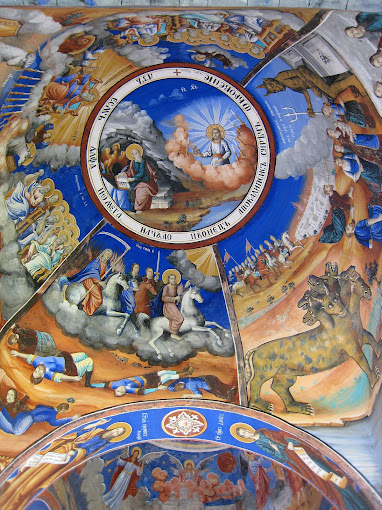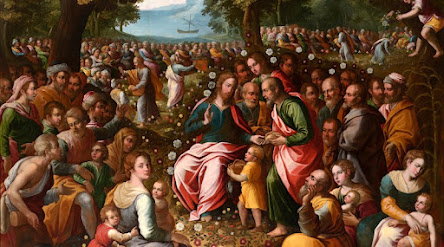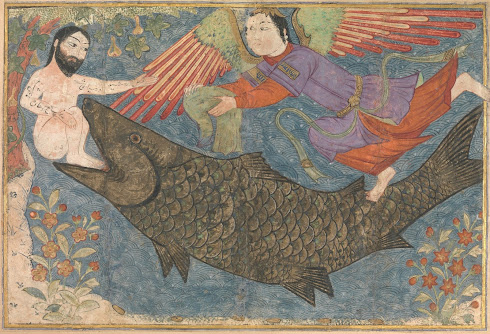(Audio)
Herod might seem uniquely and unrelatedly terrible.
Now Herod had arrested John, bound him, and put him in prison
on account of Herodias, the wife of his brother Philip,
for John had said to him,
“It is not lawful for you to have her.”
Our consciences aren't so guilty that we would put people in prison to silence them. Yet we can still learn lessons from Herod. From him we can see how a smaller sin can lead to greater ones, and how peer pressure and pride make this all the more likely.
Although he wanted to kill him, he feared the people,
for they regarded him as a prophet.
On the one hand, Herod wanted to silence John. On the other, the social order still made him feel pressure to do the right thing, and for a while this pressure was enough to keep John safe. The crowd regarded John as a prophet, and Herod himself couldn't shake the idea that there was indeed something more to him, "for Herod feared John, knowing that he was a righteous and holy man" (see Mark 6:20).
The trouble for Herod was that now that he had taken the first step on the path of sin by putting John in prison, now that he had made the first act motivated by a desire to silence John, he would find the subsequent path harder to resist. Having essentially begun to will the murder of John in his heart external pressures would quickly lose their ability to restrain him.
“Give me here on a platter the head of John the Baptist.”
The king was distressed,
but because of his oaths and the guests who were present,
he ordered that it be given, and he had John beheaded in the prison.
Herod was distressed because part of him still knew right from wrong, still understood John to be righteous, still, in fact, understood that he himself was wrong to take his brother's wife. At some level he knew from the beginning that each step along the path of arresting and finally killing John the Baptist was a step intended to silence the voice of his own conscience which spoke against him in condemnation. The point for us is that if we entertain that desire to silence that voice at all, even for a moment, it is hard to recover. Social pressures may keep us doing the right thing for appearances sake. But there will come a time either when no one is watching or when we face pressures in the opposite direction. If we no longer have our own inner moral voice on which to rely we will eventually succumb to other voices, voices of the world, the flesh, and the devil.
His head was brought in on a platter and given to the girl,
who took it to her mother.
We can avoid the path of Herod if we nip temptations to dull our conscience in the bud. The moment we notice the cognitive dissonance between pangs of conviction from our consciences and the intentions of our hearts we need to double down on listening to conscience. As Saint John Newman reminds us, conscience is "aboriginal Vicar of Christ" in the soul. We can further solidify the ground under our feet by being careful of with whom we spend our time. We should spend time with people who recognize John as a prophet, for they will help us when we are unsure of ourselves. We should be on guard against the enchantments of the world and the desire to be seen as impressive or infallible in the eyes of others. For Herod the birthday party was probably designed to make him feel privileged and powerful, but in doing so, it opened him to giving himself away, even more than he had already done. We need humility so that we don't promise dancing girls whatever they might ask.
In avoiding the temptations of the world, temptations like those Herod faced, we are not simply denying ourselves nor seeking self abnegation. We are ensuring that our hearts remain free to embrace the greater celebration that the Lord desires for us, the true jubilee year. Only in the Lord can we find true joy that builds us up rather than leaving us hollow. Unlike the false promises to which Herod succumbed, there is nothing manipulative in the promise of God. There is nothing of pride or pretense in the jubilee year, and for that very reason it is joy and peace that can give rest to our wayward hearts.
May God have pity on us and bless us;
may he let his face shine upon us.
So may your way be known upon earth;
among all nations, your salvation.














